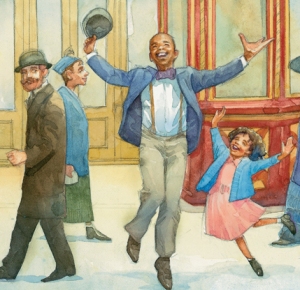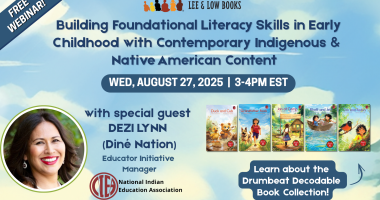 This week we are tackling what parents can do once they hear those magical words, “Your child has a Lexile score of…” For strategies for teachers and booksellers on navigating leveling systems and building a community, check out here and here.
This week we are tackling what parents can do once they hear those magical words, “Your child has a Lexile score of…” For strategies for teachers and booksellers on navigating leveling systems and building a community, check out here and here.
For parents who want to help your children find a book at their levels:
1. Ask teachers what leveling system they are using to assess your child’s reading growth.
- What does this system measure?
- What does a book at this level look like? Below-level book? Above-level book?
- What are examples of books and series that are on this level?
- Where can I find out more information about this leveling system and books measured using it?
 2. Research books and this leveling system for yourself online. Publishers and the leveling systems themselves often have books leveled. Additionally, there are many booklists already out there. Remember, your child isn’t the only one to ever have achieved a Lexile level 620. Someone has made a list before you.
2. Research books and this leveling system for yourself online. Publishers and the leveling systems themselves often have books leveled. Additionally, there are many booklists already out there. Remember, your child isn’t the only one to ever have achieved a Lexile level 620. Someone has made a list before you.
- For pre-made lists: Literacy organizations, such as Reading Rockets, ReadWorks.org, and Reading is Fundamental, have created top-notch reading lists. Libraries, such as Phoenix Public Library who built its own reader’s service to search titles by Lexile, often have ready-made booklists by grade and theme.
- To create your own: Search by book titles or by levels on Scholastic Book Wizard, Perma-Bound, Lexile’s Find a Book, Accelerated Reader BookFinder, and specific publishers like Lee & Low.
3. Do not assume that a library or bookstore will know what these levels are or mean. Ask your child’s teacher for a conversion chart to other leveling systems or download your own (see above). Download one from Reading Rockets, Booksource, Scholastic Guided Reading Program, Lexile, or Lee & Low. Also ask for booklists for Lexile levels the child should explore and take them with you to the library or bookstore.
 4. If you have a child who is reading significantly above his or her typical grade level and are concerned that higher levels equal too mature content or themes, look for expository nonfiction. Nonfiction often has higher technical and academic vocabulary bumping up the Lexile or Accelerated Reader levels (as they measure linguistic complexity), but the themes and concepts won’t be mature. Is your child reading a grade or two above peers and absolutely loved the science unit on forces and motion? Find sciences books that align with your child’s science or social studies units. Your child will be able to explore more in-depth about forces than will be covered in class. Check out the annual Robert F. Sibert Informational Book Medal winner and honors list and iNK (Interesting Nonfiction for Kids) Think Tank for award-winning nonfiction titles.
4. If you have a child who is reading significantly above his or her typical grade level and are concerned that higher levels equal too mature content or themes, look for expository nonfiction. Nonfiction often has higher technical and academic vocabulary bumping up the Lexile or Accelerated Reader levels (as they measure linguistic complexity), but the themes and concepts won’t be mature. Is your child reading a grade or two above peers and absolutely loved the science unit on forces and motion? Find sciences books that align with your child’s science or social studies units. Your child will be able to explore more in-depth about forces than will be covered in class. Check out the annual Robert F. Sibert Informational Book Medal winner and honors list and iNK (Interesting Nonfiction for Kids) Think Tank for award-winning nonfiction titles.
 5. Most importantly, continue to expose your child to a wide range of genres, levels, and text sources. Just because your child achieved a Lexile level 920 doesn’t mean the child should only read books at a Lexile level 920. Your child’s teacher may assign homework with reading passages at specific reading levels, but it’s important for students to engage with texts that aren’t leveled as most books in bookstores and libraries won’t be. We interact with texts of all kinds throughout our day, including nutrition labels, newspaper articles, advertisements, recipes, and road signs. The real world does not provide children with texts at their level all the time and we need to work with them to develop reading strategies to cope when they come across more challenging texts. Moreover, we want our readers to develop their love of reading, along with skills and critical thinking. This may include our children seeking out and re-reading favorites or comfort books that happen to be lower leveled (who hasn’t indulged on a silly summer beach read every now and then?) or trying harder books that happen to be on their favorite subject (who can resist those stunning books filled with multisyllable Greek- and Latin-derived names of awe-inspiring dinosaurs?).
5. Most importantly, continue to expose your child to a wide range of genres, levels, and text sources. Just because your child achieved a Lexile level 920 doesn’t mean the child should only read books at a Lexile level 920. Your child’s teacher may assign homework with reading passages at specific reading levels, but it’s important for students to engage with texts that aren’t leveled as most books in bookstores and libraries won’t be. We interact with texts of all kinds throughout our day, including nutrition labels, newspaper articles, advertisements, recipes, and road signs. The real world does not provide children with texts at their level all the time and we need to work with them to develop reading strategies to cope when they come across more challenging texts. Moreover, we want our readers to develop their love of reading, along with skills and critical thinking. This may include our children seeking out and re-reading favorites or comfort books that happen to be lower leveled (who hasn’t indulged on a silly summer beach read every now and then?) or trying harder books that happen to be on their favorite subject (who can resist those stunning books filled with multisyllable Greek- and Latin-derived names of awe-inspiring dinosaurs?).
 For further reading:
For further reading:
7 Strategies to Help Booksellers and Librarians Navigate Lexile
8 Strategies to Help Educators Explain Lexile and Invest Stakeholders
What have we missed? Please share in the comments your tricks, tips, and ideas for helping families and children navigate the bookshelves.
 Jill Eisenberg, our Resident Literacy Specialist, began her career teaching English as a Foreign Language to second through sixth graders in Yilan, Taiwan as a Fulbright Fellow. She went on to become a literacy teacher for third grade in San Jose, CA as a Teach for America corps member. She is certified in Project Glad instruction to promote English language acquisition and academic achievement. In her column she offers teaching and literacy tips for educators.
Jill Eisenberg, our Resident Literacy Specialist, began her career teaching English as a Foreign Language to second through sixth graders in Yilan, Taiwan as a Fulbright Fellow. She went on to become a literacy teacher for third grade in San Jose, CA as a Teach for America corps member. She is certified in Project Glad instruction to promote English language acquisition and academic achievement. In her column she offers teaching and literacy tips for educators.








